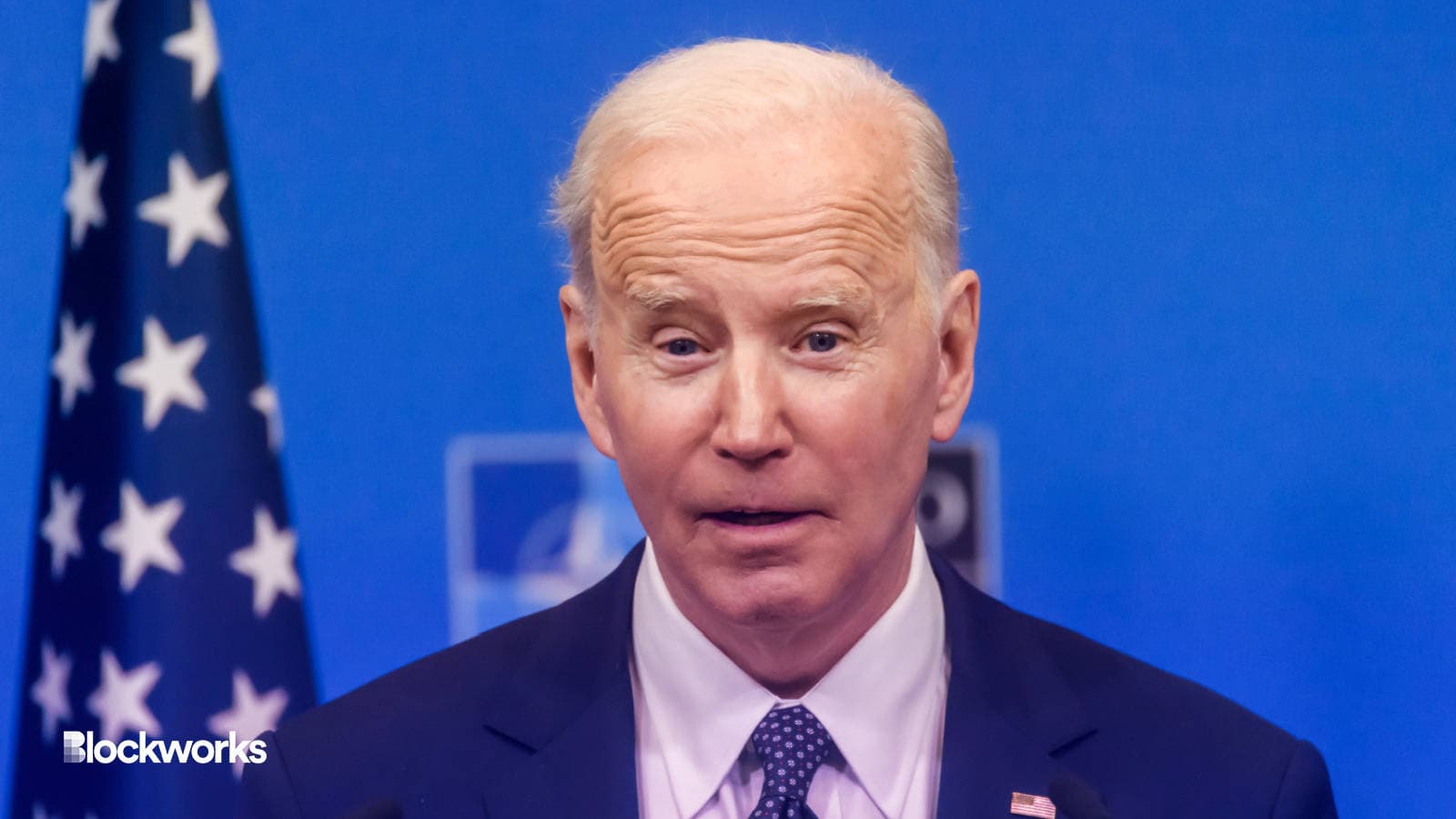‘A Bounty on Bitcoin Miners’: Industry Slams Biden’s 30% Tax
The Biden White House wants to impose a 30% tax on electricity used by Bitcoin miners, but insiders warn that could put some out of business

Gints Ivuskans/Shutterstock, modified by Blockworks
The Biden Administration has argued it should enact a 30% tax on the cost of the electricity used by Bitcoin mining to address “the economic and environmental costs.”
The Digital Asset Mining Energy (DAME) excise tax, if passed, would have a phase-in period and “encourages firms to start taking better account of the harms they impose on society,” according to a blog post by the White House’s Council of Economic Advisors (CEA).
The tax is estimated to bring in $3.5 billion in revenue over the next 10 years.
Bitcoin mining companies are now directing their ire at the Biden Administration for what they see as a blatant attempt to push crypto to the fringes.
Riot, one of the largest public Bitcoin mining companies, condemned the proposed tax and told Blockworks the US should be leading the world in the development of the Bitcoin network.
“It’s hard to overstate how bad an idea this is,” Riot said in a statement exclusively provided to Blockworks. “This proposal would push financial innovation and jobs away from America to other jurisdictions overseas, while causing harmful environmental outcomes and increased national security risks for the United States.”
Blockworks previously reported on Riot’s tiff with the New York Times after the paper published a story claiming that a Riot Platforms-owned mine in Rockdale, Texas used as much electricity as 300,000 homes in the vicinity.
Marathon Digital CEO Fred Thiel jumped into the fray as well, not mincing words. He told Blockworks that the Biden Administration’s plan has more to do with eliminating crypto than with meaningful action on climate change.
His reasoning is that the Bitcoin tax will push mining offshore to places where operations will more likely use energy sources generated by fossil fuels. For instance, before China banned crypto mining, two thirds of the electricity generation for bitcoin mining came from coal, according to the International Energy Agency.
The White House addressed this concern, but only in passing, by naming countries and localities where crypto mining is banned.
“Although the potential for cryptomining to relocate abroad — such as to areas with dirtier energy production — is a concern, other countries are also increasingly moving to restrict crypto asset mining. China banned such activity completely in 2021, as have eight other countries,” the CEA blog post stated.
Thiel also cited the Bitcoin Mining Council’s 2022 fourth quarter report that claims Bitcoin mining consumes 0.17% of the world’s energy production.
If those figures are correct, data from the US Energy Information Administration shows residential lighting and televisions use slightly more kilowatt hours of electricity than US crypto mining operations, while computers use less.
Beyond the environmental concerns, Thiel argued this proposal will run crypto miners out of business.
“If you just blanketly added 30% cost to mining … you would significantly impact their profitability, potentially making them unprofitable, which would essentially shut them down.” Thiel said.
“This is basically a bounty on Bitcoin miners.”
The crypto mining tax was originally a budget proposal that was released on Mar. 9. According to a Treasury Department document, the phase-in lasted three years, with the tax beginning at 10% and increasing another ten percentage points each year.
Get the news in your inbox. Explore Blockworks newsletters:
- The Breakdown: Decoding crypto and the markets. Daily.
- 0xResearch: Alpha in your inbox. Think like an analyst.






